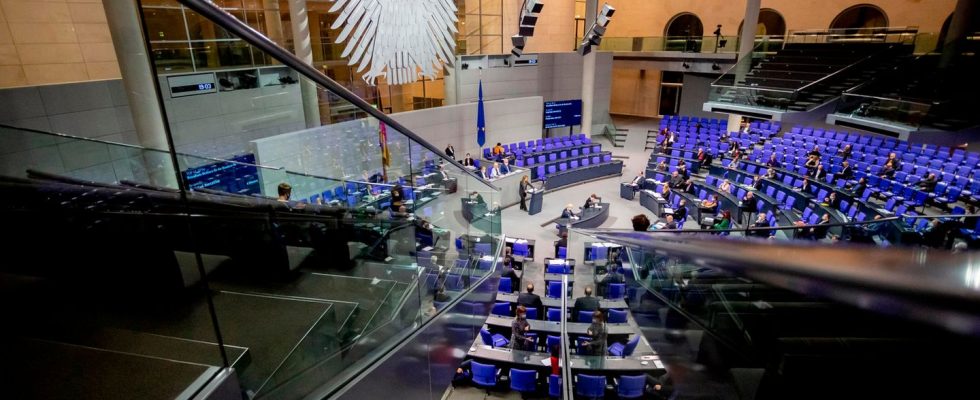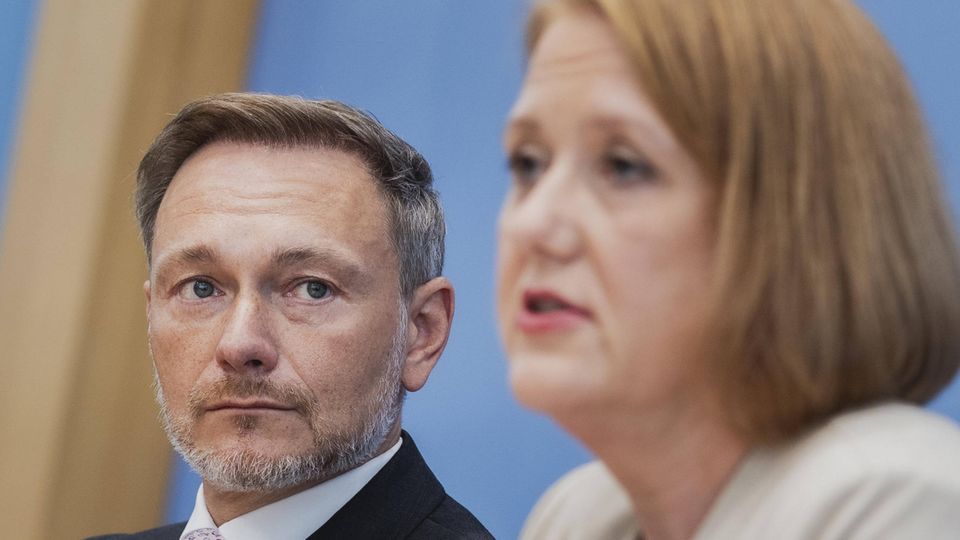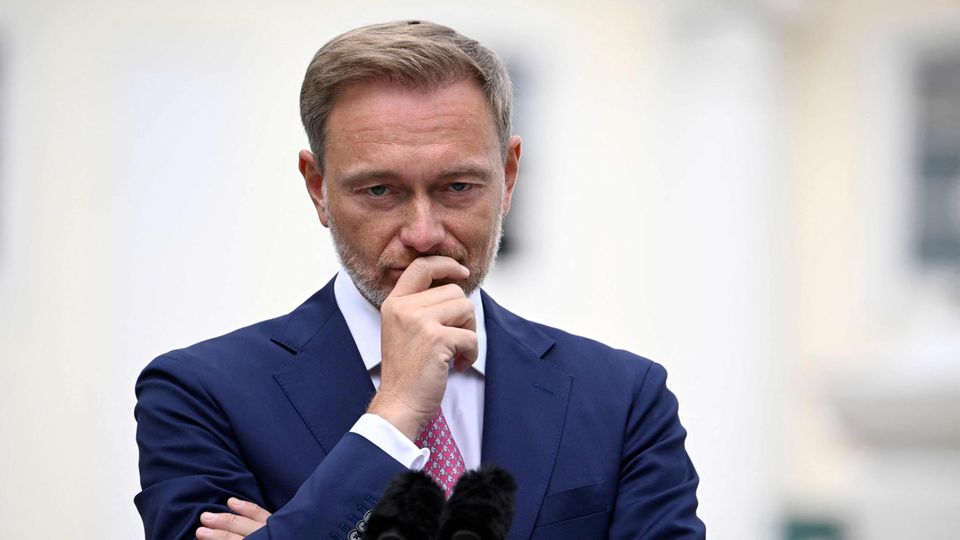Before voting on the budget, the MPs play a game: everyone has to include an agreed word in their speech. This year too, it is a term that one would not expect in politics.
No, it was certainly no pleasure recently to negotiate the budget for 2024 in the Bundestag. Finally, the budget was almost ready when the Constitutional Court got in the way of the MPs. The traffic light government had to re-advise, redeploy and save. It took and took.
The budget politicians are likely to be all the more pleased that everything will be over on Friday. The Bundestag votes on the 2024 budget. Immediately beforehand, the householders make their big appearance in the plenary session. They’ll talk a little bit about content. They will thank each other across all political groups for the good cooperation. And they will maintain a ritual that is unique in its strangeness – even for the special breed of budget politicians.
Before the meeting, they traditionally agree on a term that everyone must include in their speeches. Codeword bingo in the Bundestag. Terms from previous years included: captain’s armband, Sylt, Reeperbahn Festival, mulled wine, bald head. The important householders are always in the know. The rest of Parliament is puzzled. Most of the time this isn’t particularly difficult. After two or three speeches you notice which term is repeated.
That’s the case again this Friday. Resolution later.
A budget debate from the realm of rare animals
Sometimes it is a code word that is associated with one of the people involved. Finance Minister Christian Lindner celebrated his wedding on Sylt star reported). Sometimes the budget politicians use a current debate. It wasn’t just football in Germany that discussed Manuel Neuer’s captain’s armband at the World Cup in Qatar.
The exclusive circle of chief householders regularly agrees on a term that has stuck in deliberations. Most of the time they simply choose a particularly bizarre one. Just guess! Here are excerpts from the final round of 2020:
“Just as the donkey protecting the flock is supposed to protect the sheep from the wolves, the black zero protects the household from further debt,” said André Berghegger, CDU.
“Now Finance Minister Scholz is the protector of the herd. But the voters are not sheep,” said Gesine Lötzsch, leftist.
Yes, many parliamentarians fondly remember the donkey that protected the flock. What was it about? At that time, a feasibility study was also included in the Ministry of the Environment’s budget to examine whether a donkey could protect a flock of sheep from wolves. Cost: 100,000 euros.
In this context, it should perhaps be explained that housekeepers are a very unique breed anyway. They have sovereignty over the federal government’s budget. You decide who gets how much money. And who has none at all. Their power is correspondingly great. Her ego is correspondingly big, other MPs would probably add. The budget politicians are also called “the little kings of parliament”.
And why the nonsense?
Such a parliamentary life as a little king does have its pleasant side. Every householder can help themselves to a refrigerator filled with wine and beer on the sidelines of the meetings. (The old tap system was abolished for sustainability reasons.) There is also a coffee machine, which, should it break, has been traditionally replaced with a new one by the Chancellery since Helmut Kohl. (The current one comes from Angela Merkel’s time).
The good relationship between the budget politicians of the government and opposition is currently crumbling a little after tough weeks. They still stick to the code word ritual. A matter of honor. Which begs the question: why the nonsense?
“People always believe,” says Otto Fricke, 58, FDP, “that we householders take ourselves particularly seriously. That’s not true. The matter is important to us.” Fricke has sat on the budget committee since 2002, with an involuntary break of four years. He talks about global over- or under-spending in the federal budget with as much enthusiasm as other people talk about the last home game of their favorite football club.
The householders in the Bundestag, says Fricke, always like to talk about their work with a wink. “And the expression of this not taking oneself so seriously is the tradition of the code word in the final round.”
It started with Steinbrück’s ferret
Fricke had already negotiated budgets, but this ritual didn’t exist yet. According to tradition, it was created at a time when the FDP politician headed the budget committee. It was in 2007 that the then Finance Minister Peer Steinbrück, SPD, complained about the many critics who demanded that he keep the budget as balanced as possible: “All the ferrets are hanging on my trousers and saying: You have to be even more ambitious.”
The householders then discussed whether they could be referring to the ferrets. The plenary minutes of July 5, 2007 note the following conclusion from MP Steffen Kampeter, CDU:
“Yesterday we had a biological discussion in the budget committee about keeping ferrets. It became clear that ferrets biting a person’s trouser legs or body parts is an offer to play. We found that neither the government nor the opposition was in agreement with the finance minister With this in mind, we in the Budget Committee as a whole determined that obviously no one in Parliament could be meant by this ferret comparison.”
As I said: householders are a very unique breed. The code word game developed from the ferret question. However, another animal will not be added this year. Instead, a term from a proposal from the Ministry of Family Affairs has clearly stuck in the minds of budget politicians and their speakers. The code word for 2024 is: circus educator.



